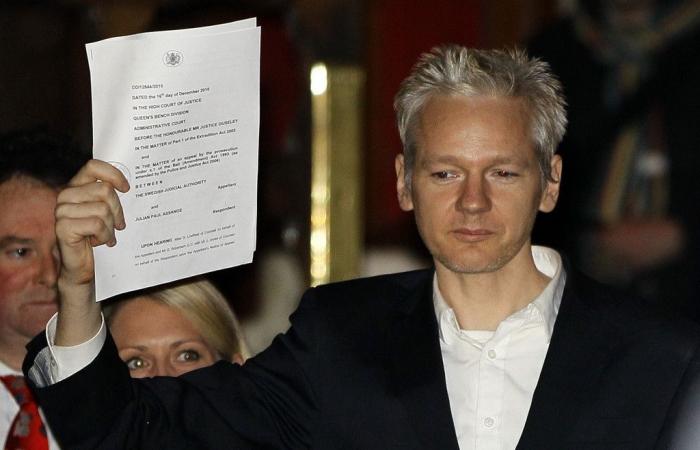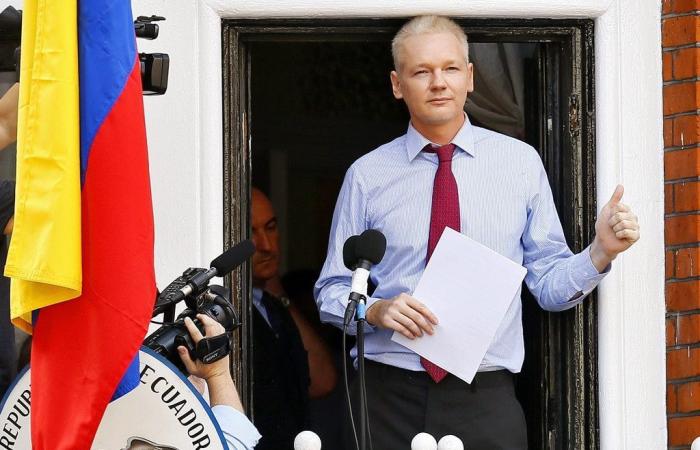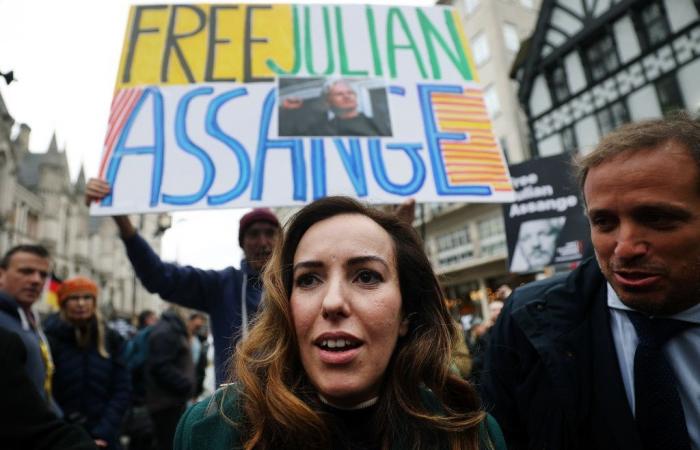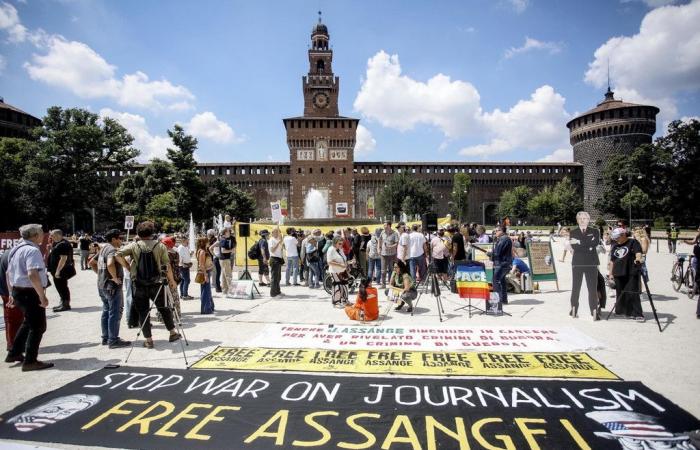– The main dates of the legal saga of Julian Assange
After more than a decade of legal battle, the agreement with the United States announces the freedom of Julian Assange. Return to this legal epic.
Published today at 10:12 a.m.
A photo taken from a video released by Wikileaks shows WikiLeaks founder Julian Assange walking towards a plane at Stansted Airport in London, Britain, June 25, 2024.
EPA/WIKILEAKS/HANDOUT
WikiLeaks founder Julian Assange has agreed to plead guilty to US authorities, the end of a legal saga lasting more than a decade. Here are the main dates.
July 2010: the revelations
In July 2010, the world press published 70,000 confidential documents on the operations of the international coalition in Afghanistan distributed by the WikiLeaks website. Some 400,000 reports concerning the American invasion of Iraq appeared in October then, a month later, the contents of 250,000 American diplomatic cables.

In 2010, Assange said he feared the United States was moving to indict him, saying Friday that he believed a grand jury was meeting to consider the charges against him.
KEYSTONE/Kirsty Wigglesworth
November 2010: arrest warrant
On November 18, Sweden issues a European arrest warrant against Julian Assange as part of an investigation into the rape and sexual assault of two Swedish women in August 2010. The Australian ensures that they consented.
The sexual assault charges will be time-barred in 2015, while the rape investigation will be dismissed in 2019.
Mr. Assange surrendered to the British police on December 7, 2010. He was detained for nine days then placed under house arrest.
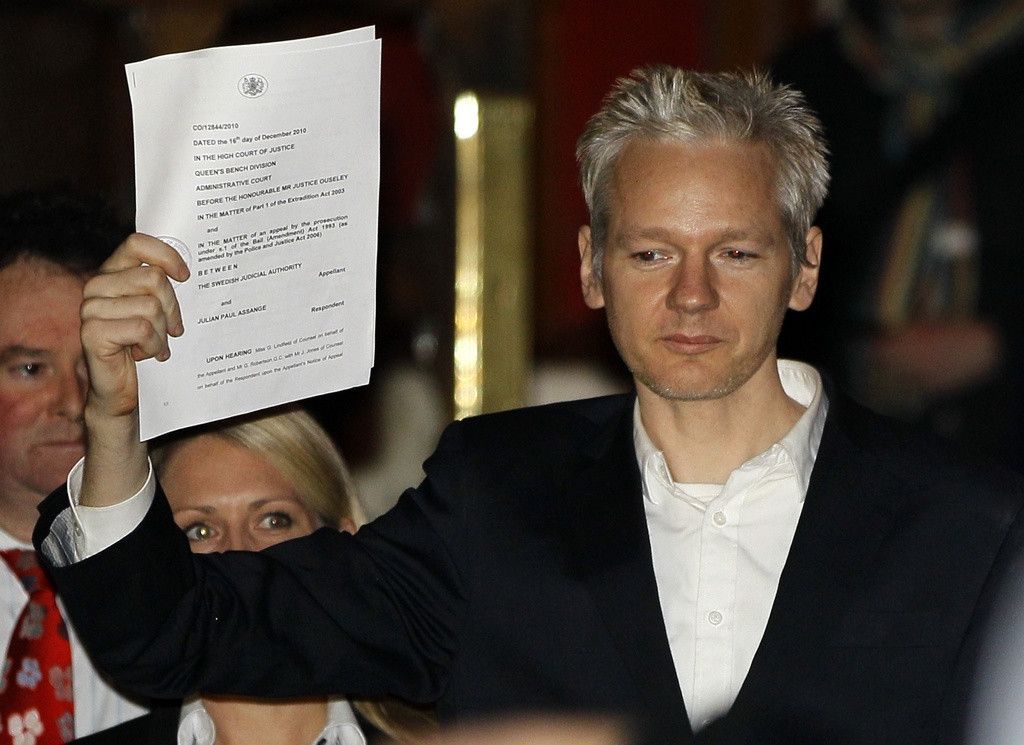
WikiLeaks founder Julian Assange was released on bail following a week of legal suspense surrounding his extradition on Thursday, December 16, 2010.
KEYSTONE/Kirsty Wigglesworth
February 2011: extradition request validated
In February 2011, a London court validated the Swedish extradition request. The Australian fears he will then be extradited to the United States and face the death penalty.
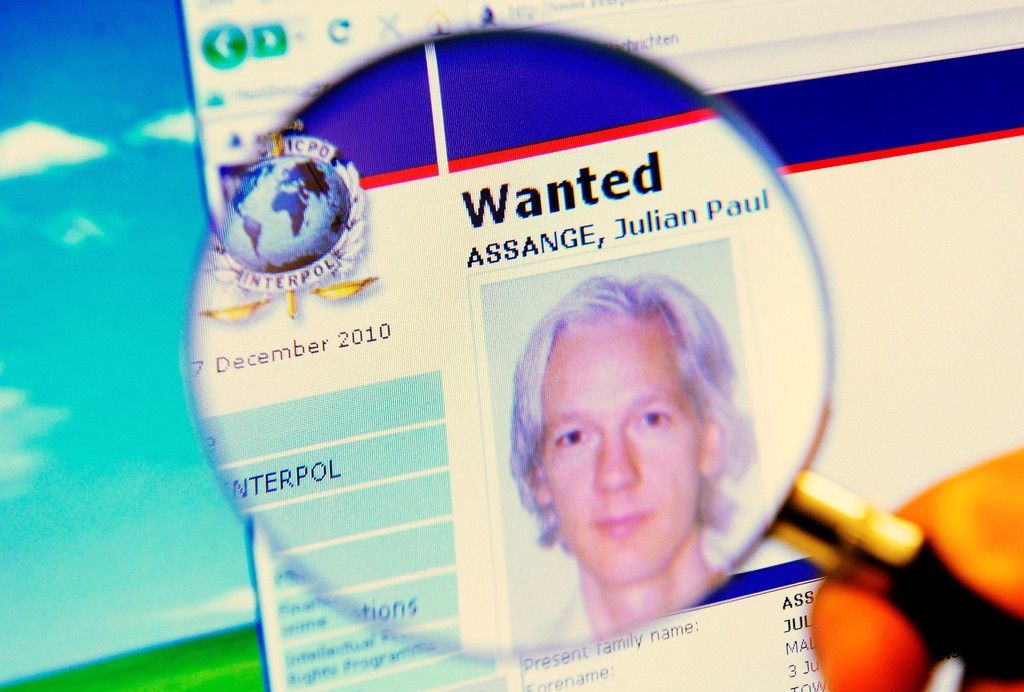
An Interpol web page with the information sheet with the search photo of the founder of the Wikileaks disclosure platform, Julian Assange.
KEYSTONE/Clemens Bilan/dapd
June 2012: refugee at the Ecuadorian embassy in London
On June 19, 2012, Julian Assange took refuge in the Ecuadorian embassy in London and requested political asylum. Ecuador, then chaired by the leading figure of the South American left Rafael Correa, granted it in August.
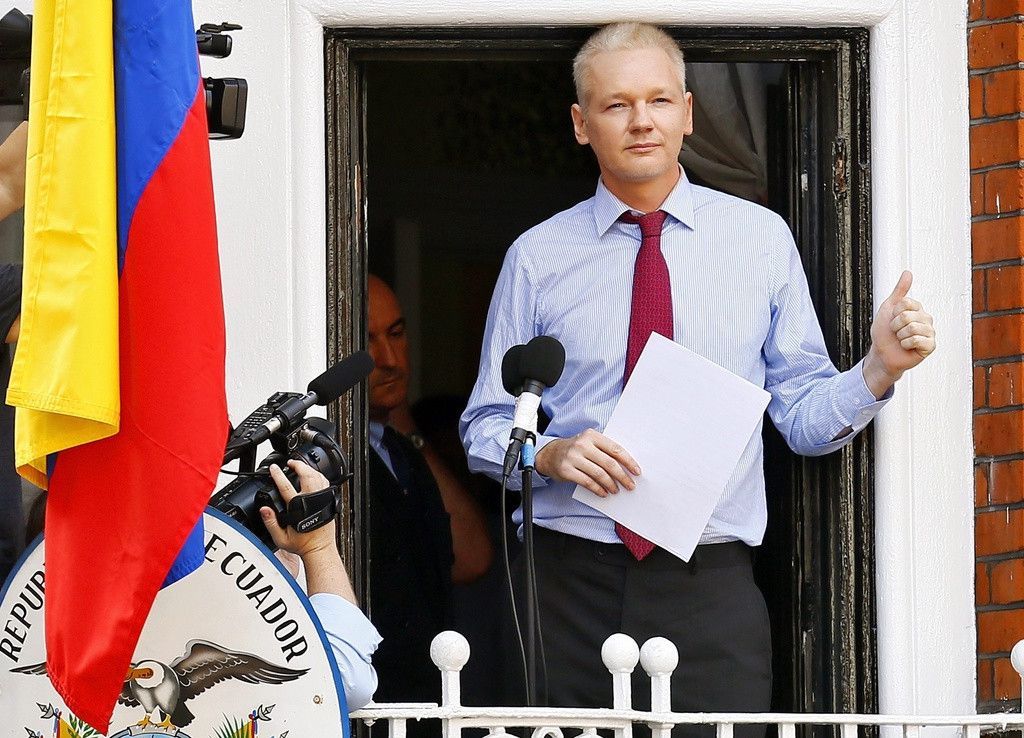
File photo showing Wikileaks founder Julian Assange giving a thumbs up before making a statement on the balcony of the Ecuadorian embassy where he sought political asylum in London, Britain, on 19 August 2012.
KEYSTONE
Mr. Assange remained cloistered in this diplomatic representation for nearly seven years and obtained Ecuadorian nationality, before being stripped of it.

Julian Assange took refuge in the Ecuadorian embassy in London with his cat, here wearing a tie.
KEYSTONE/HANNAH MCKAY
April 2019: arrested in the embassy and sentenced
On April 2, 2019, Ecuadorian President Lenín Moreno, breaking with his predecessor, affirmed that Mr. Assange had violated the agreement on the conditions of his asylum. On the 11th, the British police arrested him in the embassy under an American extradition request for “computer hacking”.
On May 1, he was sentenced to 50 weeks in prison by a London court for violating the conditions of his provisional release seven years previously.

WikiLeaks co-founder Julian Assange gestures in a prison van as he leaves Southwark Crown Court in London, Britain, May 1, 2019.
KEYSTONE/EPA/NEIL HALL
May 2019: new American indictment
On May 23, 2019, American justice indicted him on 17 new charges under anti-espionage laws. He faces up to 175 years in prison.
On the 31st, the UN rapporteur on torture, after meeting him in prison, considered that he presented “all the symptoms (of) psychological torture”.
On February 24, 2020, British justice began to examine the request for a green light to the American request for extradition.
January 2021: refusal of extradition
On January 4, 2021, the British courts rejected the request, finding that the conditions of incarceration in the United States pose a risk of suicide. Julian Assange remains in detention.

The Old Bailey court in London will make its decision on January 4, 2021, whether Julian Assange can be extradited from Britain to the United States to face espionage charges relating to the publication of secret US military documents.
KEYSTONE/STRINGER
On December 10, 2021, the High Court in London overturned the refusal of extradition on appeal, finding that the United States had provided assurances on the treatment that would be reserved for him.
On March 14, 2022, the British Supreme Court refused to take up an appeal.
April 2022: extradition authorized
On April 20, Westminster Magistrates’ Court in London formally made an extradition order.
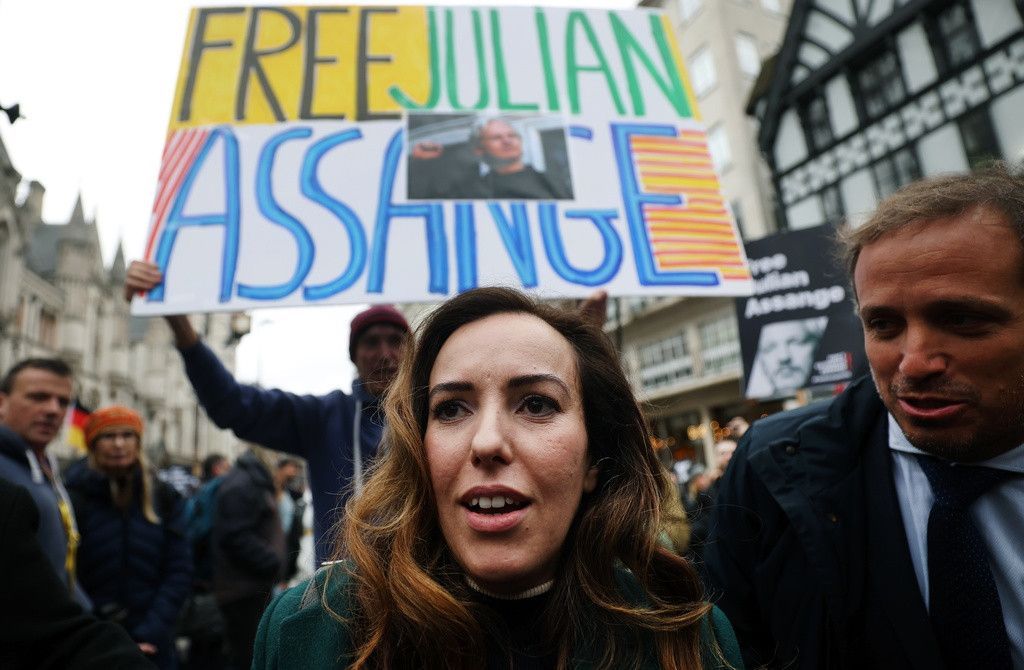
Stella Assange, wife of Wikileaks founder Julian Assange, has always campaigned for his release.
KEYSTONE
Friday June 17, British Interior Minister Priti Patel signs the extradition decree. The Australian is appealing this decision on July 1, 2022.
May 2024: new reprieve
In November 2022, five major newspapers (The New York Times, The Guardian, El Pais, Le Monde and Der Spiegel) then the Australian Prime Minister called on the United States to drop the prosecution.
Two days of hearings are organized in February 2024 at the High Court in London to examine the possibility of granting Julian Assange a last appeal against his extradition. Suffering, the Australian does not participate.
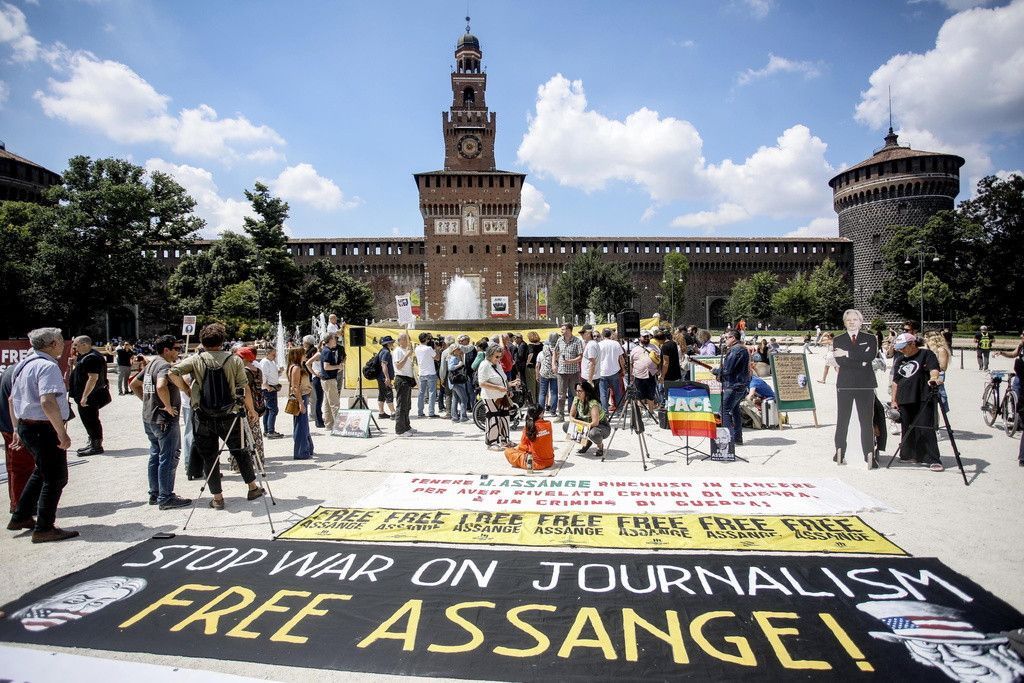
Around the world, here in Milan, demonstrators have called for his release.
KEYSTONE/Mourad Balti Touati
After asking for new assurances from the American justice system, the two British judges decided on May 20 to grant Julian Assange the possibility of appealing again. This was to be examined on July 9 and 10.
June 2024: agreement with American justice
Meanwhile, on June 24, the Australian reached a plea agreement with American authorities, allowing him to be free again.
At this point you will find additional external content. If you accept that cookies are placed by external providers and that personal data is thus transmitted to them, you must allow all cookies and display external content directly.
Allow cookiesMore informations
Julian Assange leaves the United Kingdom immediately and must appear on charges of “conspiracy to obtain and disclose national defense information” before a Federal Court in the Mariana Islands, a US Pacific territory.
“Latest news”
Want to stay on top of the news? “Tribune de Genève” offers you two meetings per day, directly in your email box. So you don’t miss anything that’s happening in your canton, in Switzerland or around the world.
Other newsletters
To log in
AFP
Did you find an error? Please report it to us.
0 comments




